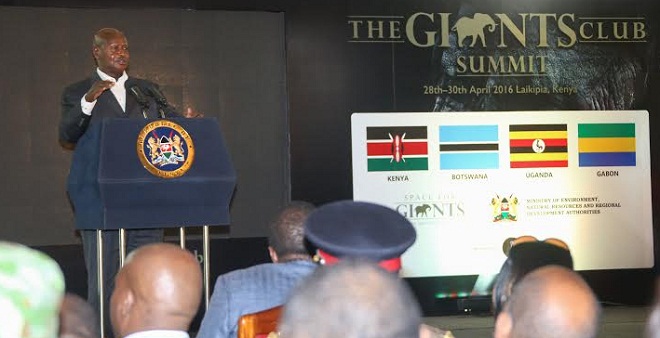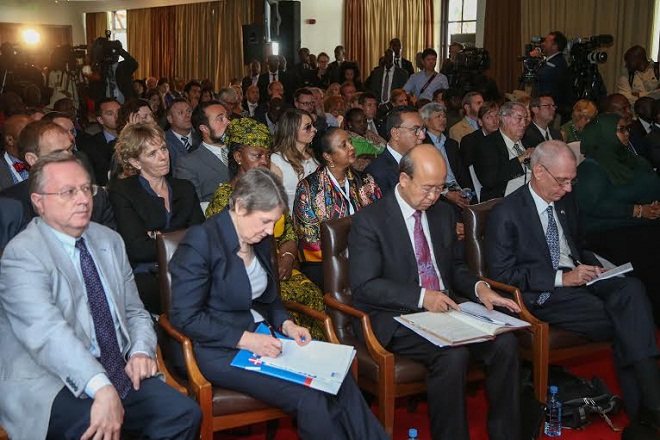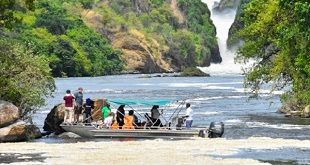
President Yoweri Museveni has told the ongoing inaugural Giants Club Summit in Nanyuki, Kenya that an under-developed population is the biggest threat to wildlife conservation.
“There are four threats to elephants and to all conservation efforts; markets for ivory and animal horns, criminality and corruption internationally and in individual countries, an under developed population and democracy,” Museveni told the gathering of philanthropists, environmentalists, conservationists, and several stakeholders in the tourism and wildlife conservation sector..
The Giants Club summit is an organization of heads of state of Uganda, Kenya, Botswana and Gabon, business leaders, key influencers and conservation experts devoted to ensuring a future for elephants and the landscapes they depend on.
“With an under-developed population, even if you stop the markets and the criminals, it will still be a threat to animals,” Museveni said.
“Maintaining under development is a threat. I hope its not part of the conservation. You cannot maintain an under developed population and think that you can maintain conservation. It is not possible.”
Votes and conservation
Relating it to democracy, Museveni explained that when people invade wetlands, forests and such habitat, it is not easy to get them out for other activities.
“When my voters invade the wetlands or forests, it is not easy to get them out otherwise they will vote me out. In my opinion, I would propose that you address the strategic challenges of shifting the population from low technology agriculture to industry and services.”
“It becomes easy to mobilize resources internationally to metamorphosis the population from pre-industry to industrialization. In Europe only 2% of the people are in agriculture, the rest are in industry and services.”
He said if the population remains in low agriculture and it is growing, the only solution is to invade forests for arable land and its not only the elephants but conservation suffers.
“Modernization of infrastructure including roads, electricity, railway etc will attract industries and services and in turn attract people away from agriculture into industrialization. There are too many people in disguised unemployment (agriculture) in the villages,” he said.

Wildlife and hotels
Museveni was glad that international efforts towards attracting more tourists to Africa are growing, saying this translates to more hotels and services that can create employment.
He said with modern agro production, farmers can improve their yields but this has to be demonstrated to them.
“In my opinion, a multi dimensional approach to these issues will solve the problems. Deal with the demographics and changing population attitudes. In Uganda, by 1986 the population of elephants dwindled to 2000 from 30,000. It has now grown to about 6000 because of our strong stand on conservation. For us, we send poachers to heaven prematurely,” he said.
Museveni said the biggest challenge that Uganda is struggling with now are people encroaching on forests, wetlands etc.
He concluded that for Africa to conserve her wildlife, the environment and all her natural habitat, the continent needs to invest in the transformation of her population and enable people to shift from low technological agriculture to industrialization and services sector.
 The Independent Uganda: You get the Truth we Pay the Price
The Independent Uganda: You get the Truth we Pay the Price


